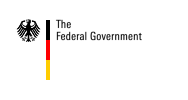The number of new infections this year is estimated at 4.3 million, with the highest infection rates being registered in Eastern Asia, Central Asia, and Eastern Europe.
Speaking at the presentation of the global report, Development Minister Heidemarie Wieczorek-Zeul emphasized the impact the epidemic is having on women: "Nearly half of all HIV infections are now found in women. Ten years ago it was only 12 percent." She urged that more be done to help protect women and girls against AIDS.
The area of the world hardest hit by the epidemic continues to be sub-Saharan Africa. Two-thirds of the world's known HIV cases are found in this region.
The death toll for 2006 is estimated at 2.9 million. AIDS continues to be a deadly disease.
A separate report, the UNAIDS/WHO AIDS Epidemic Update: December 2006, provides the latest information on global trends shown by HIV/AIDS. UNAIDS and the German AIDS Foundation joined forces to produce a German-language edition of the update under the title: "Die Aids-Epidemie. Statusbericht: Dezember 2006".
Young people will play a crucial role
UNAIDS representative Berti Lindblad, who presented the global report together with Wieczorek-Zeul, noted a few encouraging signs, saying that some countries have shown positive trends in the sexual behaviour of their young people.
The future of HIV/AIDS in the world will depend in large part on the actions of young people, lending great importance to AIDS awareness and prevention campaigns.
Germany committed to fight against HIV/AIDS
Wieczorek-Zeul indicated that the fight against HIV/AIDS will be a focal topic of the G8 and EU presidencies next year.
UNAIDS is a joint United Nations programme on HIV/AIDS. It replaced the Global Programme on Aids (GPA) in 1995. As a worldwide coordinator UNAIDS builds knowledge stations and networks, bundles experience, and supports other organizations and institutions in the fight against HIV/AIDS. Over the period from 1987 to 2003 Germany's Federal Ministry for Economic Cooperation and Development provided 18.64 million euros in funding for UNAIDS.
